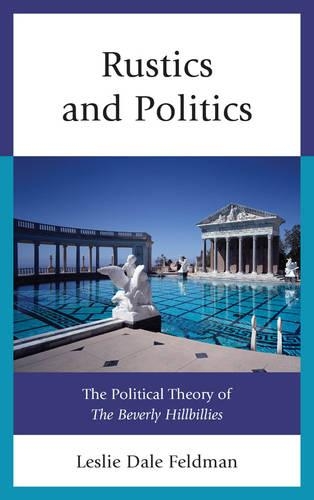
Rustics and Politics: The Political Theory of The Beverly Hillbillies
(Paperback)
Publishing Details
Rustics and Politics: The Political Theory of The Beverly Hillbillies
By (Author) Leslie Dale Feldman
Bloomsbury Publishing PLC
Lexington Books
15th December 2015
United States
Classifications
Professional and Scholarly
Non Fiction
Media studies
Popular culture
320.4758
Physical Properties
Paperback
198
Width 152mm, Height 229mm, Spine 20mm
422g
Description
The Beverly Hillbillies includes the portrayal of rich versus poor, the American dream, wealth, and social mobility in popular culture. The Hillbillies was a phenomenon of post-World War II America, the second wave after the 1950s, the dustbelt Depression meets the promise of opportunity achieved through luck. Luck counts in liberal society. It is, said Machiavelli, the arbiter of half of what we do. But is success based on luck really the American dream And who is the bigger success storythe Hillbillies or those who have earned their wealth Whom do we want to be or be like Everyone wants to win the lottery, but is everyone willing to do what it takes to achieve financial independence without winning the lottery Does winning the lottery bring social status or can it only be achieved by labor In sum, Paul Hennings brilliant comedy series The Beverly Hillbillies is replete with political ideas and has come to occupy a special place in popular culture as a classic television icon because of its deeper meaning and relationship to how we think about wealth, status, social mobility and the American dream.
Reviews
Near the conclusion of her case that the 1960s sitcom The Beverly Hillbillies addressed sundry questions about American culture and the American dream, Feldman maintains that while the show ask[ed] us to suspend our disbelief, it, nonetheless, remained believable. Some readers familiar with The Beverly Hillbillies may continue to question this claim even after reviewing Feldmans strenuous efforts to identify the, in her view, manifold ways in which Paul Henning, the shows creator, wove into his scripts commentary on American understandings of the relative merits of acquiring wealth through luck or achievement, the tension between urban culture and country values, and the perennial question of whether or not money can buy one happiness. Feldman displays knowledge of classical and modern political thought and a talent for drawing on this knowledge to tease occasional insights out of even this most unlikely of source material that may appeal to undergraduates. Summing Up: Recommended. Undergraduates all levels. * CHOICE *
Informed by her command of classical and modern understandings of politics, economics, and human nature, Leslie Feldmans work on The Beverly Hillbillies shows us how the pursuit of happiness at the heart of the American dream finds its fulfillment not in possessions, wealth, or status, but in those experiences which prove the bedrock of our republic and the heart of shared civic life: family, friends, hard work, civic engagement, humility, and trust. In an era that some critics are calling a golden age of TV, Leslie Feldman reminds us that this classic of American television provides us with an education in civics every bit as insightful as its contemporary rivals. -- Bernard J. Dobski, Assumption College
Author Bio
Leslie Dale Feldman is professor of political science at Hofstra University.
